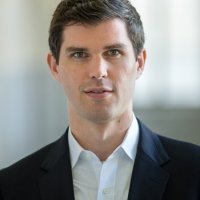Bolstering Global Food Security
"Reducing vulnerability in developing countries will be one of the most critical factors to ensuring global food security," writes Schuyler Null of the Environmental Change and Security Program.
Dramatic events over the last year have shed light on the problem of global food security: massive fires in Russia, which reduced wheat supplies; famine and drought in Niger and Chad; and food price riots in the Middle East and elsewhere. These stresses come amid price spikes that echo the food crises of 2008 and reveal the linked nature of food security today.
In most countries, food insecurity is a symptom of poverty, poor governance, and/or poor infrastructure. Developed countries can often rebound from natural disasters relatively quickly. However, in drought-prone countries like Niger and Chad or flood victims Pakistan and North Korea, such structural weaknesses leave people unable to bounce back from extreme events. This makes development efforts more difficult and can cause vulnerable countries to quickly become a burden on their neighbors or more prone to internal instability.
In the long term, reducing vulnerability in developing countries will be one of the most critical factors to ensuring global food security. But to meet the projected demand from increased consumption and continuing population growth, global yields must also increase.
The Green Revolution of the 1960s and 70s saved millions of lives by introducing heartier strains of rice and improving other staple crops in South and Southeast Asia, and most agree that a "Second Green Revolution" (whether or not it looks like the first) will likely be necessary. If so, the current tensions in the West over organic or sustainable practices versus agribusiness models must be reconciled in a way that provides the most immediate help for the world's hungry.
An important requirement, however, is that, in a more resource-constrained world, these yields must be increased without destroying our future capacity. How we go about this, whether through traditional industry, organic techniques, or a mixture of both, will be one of this century's defining challenges.
About the Author

Schuyler Null
Schuyler Null is the former editor-in-chief of New Security Beat and writer/editor for the Wilson Center’s Environmental Change and Security Program and Maternal Health Initiative.
Read More
Environmental Change and Security Program
The Environmental Change and Security Program (ECSP) explores the connections between environmental change, health, and population dynamics and their links to conflict, human insecurity, and foreign policy. Read more










